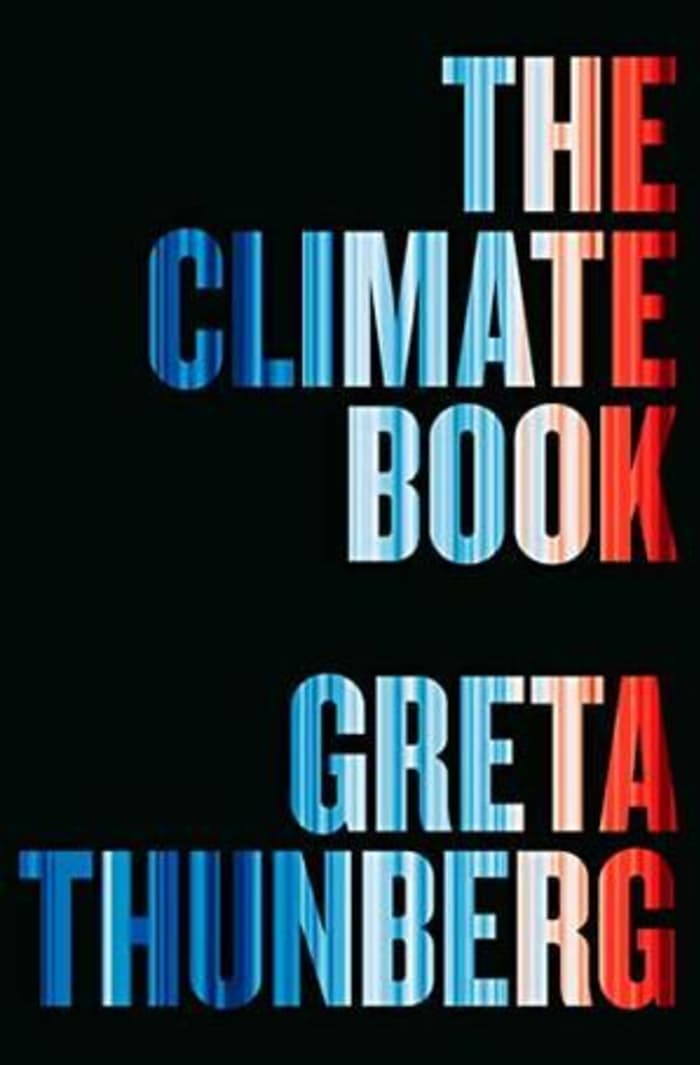#Key Words: Greta Thunberg calls capitalism and market economics a ‘terrible idea’ for stopping climate change in new book

Table of Contents
“Key Words: Greta Thunberg calls capitalism and market economics a ‘terrible idea’ for stopping climate change in new book”
The Gen Z activist, arguably the most recognizable face of the environmental movement, features 105 guest essays, as well as her own contribution, in her latest call to action, ‘The Climate Book: The Facts and the Solutions’
“‘Leaving capitalist consumerism and market economics as the dominant stewards of the only known civilization in the universe will most likely seem, in retrospect, to have been a terrible idea.’”
That’s the latest criticism of the established world order from Greta Thunberg, arguably the best-known face of the climate movement and perhaps of Gen Z politics writ large.
If capitalism created the crisis, as Thunberg suggests, then leaning on its mechanisms to fix the crisis is a flawed idea, she says.
Last month, Thunberg slammed corporate bigwigs holding their annual meetings in Davos, Switzerland, for “fueling the destruction of the planet” by investing in fossil fuels
CL00,
and prioritizing short-term profits over people affected by the climate crisis.
Related: Greta Thunberg: It’s ‘absurd’ that we think the oil companies causing the climate crisis have a solution to it
Divided into five parts — How Climate Works, How Our Planet is Changing, How It Affects Us, What We’ve Done About It and What We Must Do Now — the book features 105 guest essays covering everything from ice shelves to economics, from fast fashion to the loss of species, from water shortages to respecting the sovereignty of Indigenous people over their time-tested sustainable practices.
And it looks ahead, tackling the future of food production and implementing carbon budgets, which are intended to limit the huge gap between a polluting, industrialized and actively developing world and the poorer nations that are being tapped for their resources yet bear the brunt of droughts, extreme heat, dangerous storms and eroding coastlines.
More: Read Greta Thunberg’s killer comeback to former kickboxer Andrew Tate’s tweet about his ‘enormous emissions’

Penguin Press
Contributors include veteran scientists such as Johan Rockström, Michael Mann, Katherine Hayhoe, Friedrike Otto, Stefan Rahmstorf, Saleemul Huq and Carlos Nobre. Novelist Margaret Atwood has an essay, as does David Wallace-Wells, whose 2017 essay “The Uninhabitable Earth” remains the most-read piece in the history of New York magazine.
Thunberg says sobering facts must be the starting point.
“If you are one of the 19 million U.S. citizens or the 4 million citizens of China who belong to the [wealthiest] top 1% — along with everyone else who has a net worth of $1,055,337 or more — then hope is perhaps not what you need the most. At least not from an objective perspective,” Thunberg writes.
Opinion: The four biggest challenges of the transition to green energy
She goes on to say that while progress is welcome, she doesn’t entirely trust the way those in power log those changes.
“How do all those reductions hold up once we include our total emissions, rather than carefully managed territorial statistics?” she ponders. “In other words, all those emissions that we so successfully negotiated out of these figures. For instance, outsourcing factories to distant parts of the world and negotiating emissions from international aviation and shipping out of our statistics, which means that we not only manufacture our products by using cheap labor and exploiting people, we also erase the associated emissions — emissions that have, in reality, increased. Is that progress?”
“ ‘Keeping emissions below 1 metric ton per person a year will not be a problem for the majority of the world’s population.’ ”
— Greta Thunberg
Thunberg, who came on the scene five years ago as a 15-year-old staging a solo protest in front of Sweden’s Parliament, said her goal is to raise public awareness by sharing the best available science to shine a spotlight on what we’ve done to the Earth and what we must do to keep it habitable by humanity. Her protests and globe-crossing activism created Fridays for Future, a youth-led, school strike movement.
And the book suggests it’s not too late to act, with its alarming charts followed by a decidedly hopeful conclusion that’s a contrast to the alarm Thunberg usually exudes when she’s facing the United Nations or the World Economic Forum.
“Keeping emissions below 1 metric ton per person a year will not be a problem for the majority of the world’s population, since they will only need to make modest reductions — if any — in order to live inside the planetary boundaries,” Thunberg says. “In many cases, they would even be able to increase their emissions quite substantially.”
Don’t miss: Jane Fonda says climate crisis can be blamed on racism: ‘Where would they put the sh—? Not Bel Air.’
“The Climate Book” earned a starred Kirkus review that applauds its emphasis on action and calls it “vital reading for anyone who cares about the planet.”
Even major investors and global market players who may in spirit align with Thunberg tend to argue that the market economies the book pins the crisis on will have to provide the solution. They are banking on a belief that to tackle the climate crisis, it will require the reach of capitalism, combined private and public initiatives, a mix of traditional and alternative energy sources
ICLN,
and constantly improving technologies ranging from grabbing emissions from the air to storing unused energy.
Read: Clean-energy investing is poised to top the money backing oil and gas after hitting a record $1 trillion
Larry Fink, CEO of BlackRock, the world’s largest fund-investing company, famously devoted a “materially different” 2020 annual letter to shareholders and executives on sustainable investments. In the letter, he called fighting climate change the “investment opportunity” of his lifetime and one that will deliver better returns over time.
By
Rachel Koning Beals
If you liked the article, do not forget to share it with your friends. Follow us on Google News too, click on the star and choose us from your favorites.
For forums sites go to Forum.BuradaBiliyorum.Com
If you want to read more News articles, you can visit our News category.




